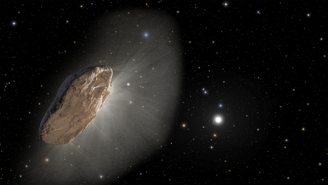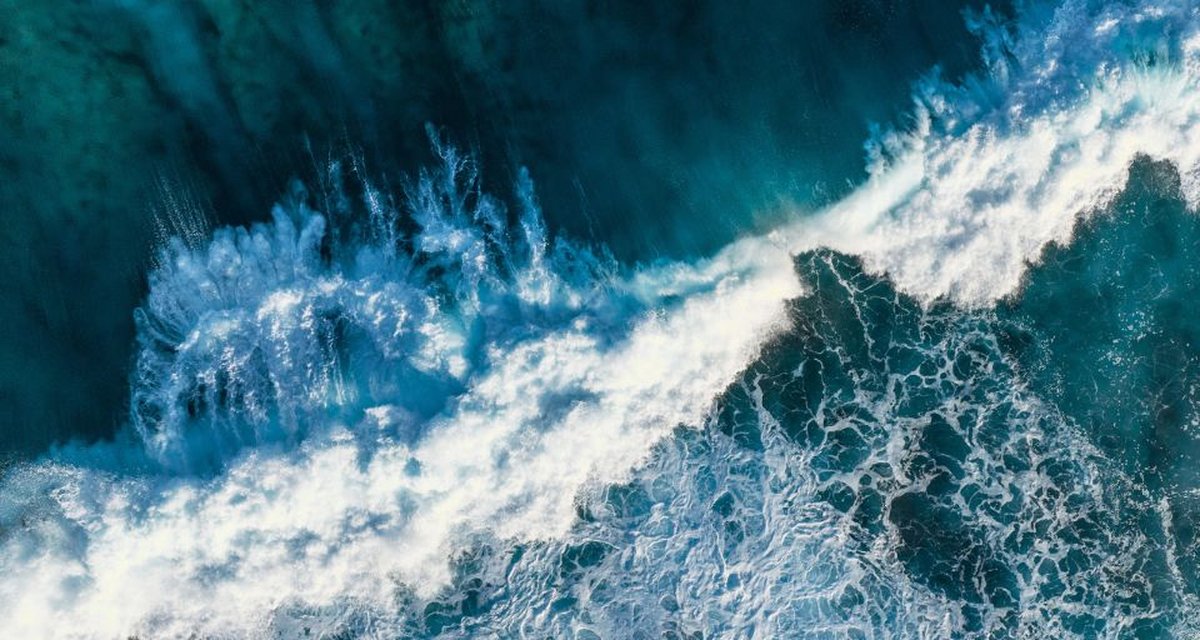The recent completion of a phase of construction of the long-awaited Vera C. Rubin Observatory in Chile has astronomers worldwide excited. By placing a reflective coating on the primary mirror, Optical telescope will be able to capture light from extremely dark objects in the night skyThis is an event that we have not been able to observe until now.
Interestingly, one of the themes, in which the powerful optical device will make its field of view five times larger than that of the Hubble Space Telescope, is connected not with the mysteries of the distant reaches of the Universe, but with a local question: where was the Earth’s satellite? Do oceans come from Earth?
In an opinion piece recently published on Space.com, mathematician and physicist Darryl Seligman of Cornell University’s Department of Astronomy explains that although we know that our planet’s oceans are an essential component in the development of life, we still aren’t sure how. They established it.
Possible “delivery” of ocean waters
The enigma about the origin of water on Earth begins with the study of the liquid’s properties; This is clearly incompatible with what would be expected if the basic molecule H2O had been present since the formation of the planet. In this way grSome astronomers believe the water was brought here by comets from distant regions of our Solar System.
In addition to these precursors, Seligman explains that some recently discovered interstellar objects (such as ‘Oumuamua in 2017 and 2I/Borisov in 2019) may provide clues about how water is distributed to other planets outside our Solar System.
After the European Space Agency’s (ESA) Rosetta mission discovered that the water on comet 67P/Churyumov-Gerasimenko, visited in November 2014, had an isotopic composition different from ours, Seligman and colleagues last year discovered a new class of interstellar objects like ‘Oumuamua, called “dark “Comets” may be lurking in our Solar System.
Could dark comets bring water to the oceans?

After navigation engineer Davide Farnocchia of NASA’s Jet Propulsion Laboratory detected seven asteroids have well-defined orbits and strong non-gravitational acceleration that cannot be attributed to solar radiationhe and Seligman proposed the concept of dark comets.
According to the article published in The Planetary Science Journal, the objects Faranocchia examined were not asteroids, but “dark comets hidden inside near-Earth asteroids.” Although they have small bodies, these objects exhibit a gas-emission mechanism unique to comets when they approach the Sun.
Gas production due to sublimation of ice creates a thrust on the comet’s surface that propels it into space like a rocket. But, Unlike traditional comets, these objects did not have tails that were visible through our telescopes.. But the possibility of containing ice water makes them one of the possible providers of water from the Earth’s oceans.
Are we one step away from revealing the origin of the world’s oceans?

The passage of ‘Oumuamua, an object accelerating at the same speed as the comet, through our Solar System attracted attention for two reasons. The first is that it is the first object in our cosmic neighborhood that can be proven to be interstellar, and also because it does not have a comet tail, it is confused with “our” asteroids.
The nearly simultaneous discovery of the first interstellar object and the first dark comets “means we’re just at the tip of the iceberg,” Seligman says. In addition to potentially having our oceans in our data, They may carry materials needed for life to form on rocky planets orbiting other stars.
While internal theories about the origin of Earth’s oceans, such as volcanic degassing and atmospheric reactions, also exist, the discovery of new “cloaked” comets suggests that not only do we have many more “water dispensers” than we thought, but also that the oceans contain precious liquid, abundant in our Solar System. is found and may be present everywhere in the Universe.
Did you like the content? Stay up to date with more interesting science facts on TecMundo and get the opportunity to discover why it is so difficult to explore the bottom of the sea. To the next one!
Source: Tec Mundo
I’m Blaine Morgan, an experienced journalist and writer with over 8 years of experience in the tech industry. My expertise lies in writing about technology news and trends, covering everything from cutting-edge gadgets to emerging software developments. I’ve written for several leading publications including Gadget Onus where I am an author.













